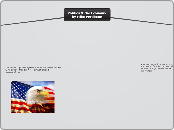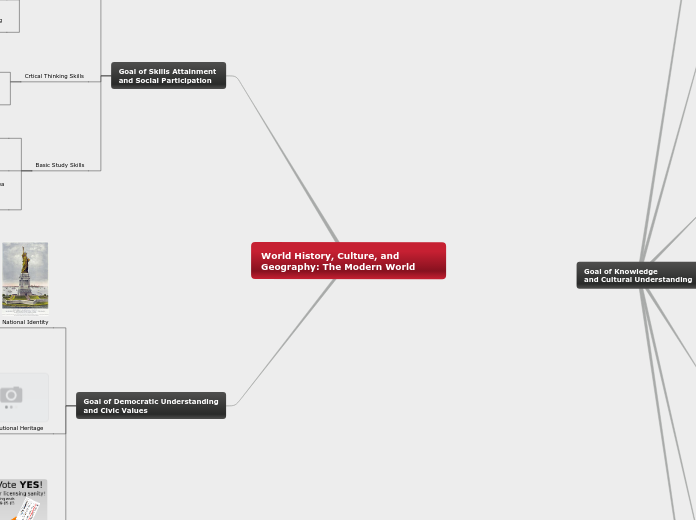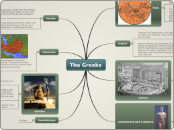An Overview of American Government
By: Benjamin Engleman
Money Doesn't Grow on Trees!
The process of making new coins:
The executive branch role
The legislative role
To make a new coin, the legislative branch must:
1.listen to the president's idea for the coin
2.create a design, and vote to approve it
3. sends a bill to the president to pass
4.If the president vetoes, possibly override the veto
What must a country's
government provide?
Services
Food inspection
Road maintenance
Medical care
Economic Descisions
Protection
Limits on Government
Government must be limited to ensure liberty, justice, and freedom to all people.
Minority Rights
Equal rights to all people.(citizens)
Citizens must agree to the actions of the government, to a certain degree, anyway.
Seperation of power
Power is divided.
For example: the government of the United States of America is bicameral, or having two legislative chambers, so the legislative, or law making power of the United States is divided into two parts.
Rule of law
This means that nobody is superior to the law.
Constitution
A constitution is "a rule book for a country's government". A constitution tells how laws are made, sets rules for government, and lists the rights and resposibilities of citizens.
Constitution Solution
Fairness
Each state must treat citizens of other states the same as it treats it's own citizens. ( if I travel to Maryland, I must follow their laws while I am in their state)
Adaptability
Laws passed by congress are superior to those passed by state.
The constitution can be ammended if two-thirds of congress, and three-fourths of the states agree on the change.
Number of Votes Per State
Compromise
Our founding fathers compromised on a bi-cameral system where each state got two senators, and the number of people in the house of representatives were based upon population.
New Jersey Plan
The New Jersey plan proposed a 1 house congress,( or uni-cameral) and wanted to have one vote per state, and this way, the smaller states would have more power.
Virginia Plan
Legislative branch has 2 houses,(or is bi-cameral) and the votes would be based on population, so the bigger states would have mor power.
Division of Power
Interprets laws
Carries out laws
Makes laws
Articles of Confederation
Bad points
All states had to agree to change the Articles
Congress had no power to collect taxes to pay
for the military.
Congress had no way to enforce it's laws
Good points
Congress had the power to create a military to
protect the states
No government telling the states what to do
States keep their power and independence
The Three Branches
Executive Branch
The Executive branch's duties are to enforce laws, handle foreign affairs, and to protect our country, both internally, and externally.
The President's
cabinet.
Members of the cabinet are specialists that concentrate on certain areas (i.e. Health and Human Services, Dept. of Defence, et-cetera) but are not necessary.
President
The President views laws that have gone through both the house and the Senate. He can either pass or veto a law. If he decides to pass it, he can delegate it with his cabinet, to see if it is desireable, and lastly, the law must be reviewed by the supreme court to see if it is constitutional. The President can also take an action called a "pocket veto" which is when he/she doesn't take action. They just ignore it until congress dismisses it.
Judicial Branch
The Judicial branch is made up of all of the courts of the United States. Their job is to interpret laws, and to make sure that the Legislative and Executive branches are playing fairly, so to speak, anyway.
Legislative Branch
The Legislature's job is to make laws, impose taxes, raise an army, and, keep the president in check. The Legislative branch also makes the various courts of the United States, and grants the power to do so to the states.
Unicameral
Only one chamber of congress.
State(s) that have this
type of system.
Nebraska is the only
state to have a
unicameral legislature.
The reason that Nebraska adopted the unicameral legislature is that it is more efficient, you can get more done, but you sacrafice the safeguard that comes with a bicameral.
Bicameral
Two chambers of congress.
Senate
The Senate votes on laws that have already passed the house of representatives, and if it passes, they send it to the president, who either vetoes it, or passes it. The house and senate must gather a 2/3 vote to override a presidential veto.
Each state gets exactly two
Senators, no more, no less.
House of Representatives
The house of representatives proposes a law, votes on it, and if it passes their vote, they send it to the senate.
Amount of representatives
determined by population
(currently each representative
represents about 610,000 people)
Just Right Government
Protects individual rights
The government lets people have a say
The government considers the needs
of all of the states
Nobody has too much power
Hey King, Get off our backs!
Important Ideas:
Self evident
Something that can be seen if you so much as look at it.
Just Powers
Powers that are fair to everybody.
Consent of the Governed
Permission of those under the government's rule.
Natural Rights
Rights that people are born with.
Persuit of Happiness
You are allowed to search for joy and contentment.
Unalienable Rights
Rights that can't be taken away.
English laws that
outraged colonists:
Intolerable Acts
Quartering Acts
The Townshend Revenue
The Declaratory Act
The Stamp Act
Forms of Government
Anarchy
Rule by none.
Oligarchy
Rule by few. Usually obtained by military power.
Theocracy
Rule by a god or higher power. Usually is ruled by religous leaders.
Autocracy
Dictatorship
Monarchy
Democracy
Indirect
Democracy
Direct
Democracy
When all citizens vote on everything. Citizens could lose interest and not vote truthfully, on the other hand, everybody gets their say in all issues.
Colonial influence
Our founding fathers of the constitution, known as "the framers" were influenced by other documents concerning American freedom.
Important Documents
English Bill of Rights
Magna Carta
Cato's Letters
Common Sense
Mayflower Compact
Big Ideas
Rights
It is important that people can rest assured that their rights cannot be violated by the government.
Limited Government
Government's power is limited somehow, by a consitution, agreement, et-cetera.
Due Process
People have the right to fair and reasonable laws, and officials must treat everybody the same, making no exceptions on laws or regulations.
Self-Government
The people decide how the government should work.
Rule of Law
People must follow all laws, and those laws are enforced equally to everybody, regardless of who they are.









